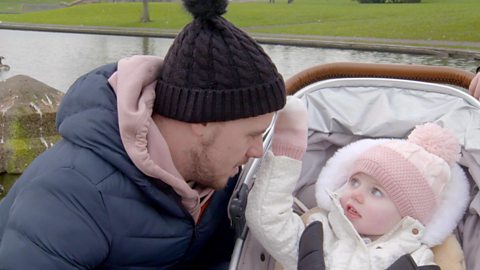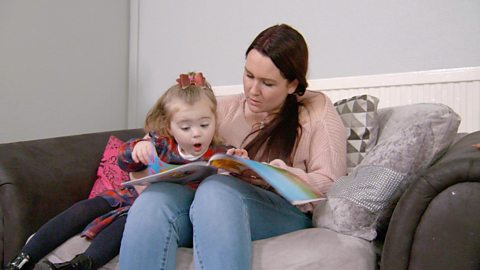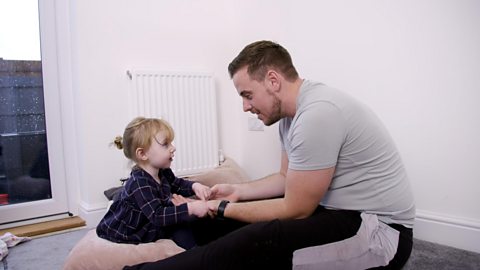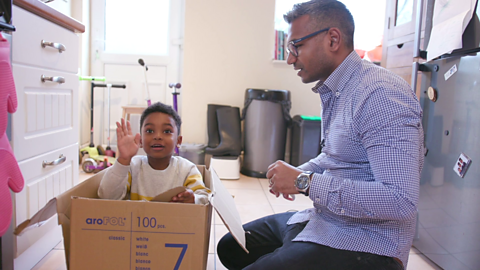Pretend play is an easy way to help your child build their understanding of the world and develop language to go along with that.
This shopping game uses simple objects from around your home to create a fun and engaging game for toddlers.
Play along as the customer or shopkeeper and help your child use new words and follow simple instructions.
Watch the short video below for some shopping play inspiration.
Can you find me a carrot for my stew?
Oh thank you Aubri.And a cucumber!
Cucumber.Good girl.
More carrots.Yes please.
Oh this is brilliant shopping Aubri.
Aubri helping.Aubri's helping mummy shopping.
Aubri can I have somesunglasses please?
There you goãÎ (BABBLES)
Are they for me? For my shopping?Thank you.
Me.For you?
Aubri, can you find me atoothbrush in your shop please?
I need one.I need a new toothbrush.
(BABBLES)
Here's the money!
There you go well done.
I found dinosaur.You found a dinosaur?
Rah!Oh you made me jump!
Thank you, rah!
Thank you Mr Dinosaur.
What are the benefits of shopping role play?
- In pretend play, kids get to use new words and phrases they might not use regularly.
- Shop play introduces vocabulary around money and payments.
- Passing toys back and forth helps your child learn about taking turns and manners.
- Having made-up conversations is a great way for children to practise their social communication.
- Letting your child take on a variety of roles can boost their confidence and develop their empathy.
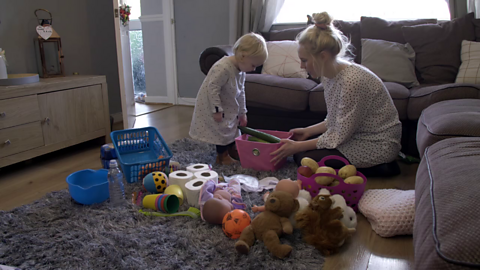
How to get the most out of playing shop?
This game does not need any special items whatsoever.
All you need to do is collect stuff from around your house and place it on a table or the floor. You don't need a fancy shop front, and you can use imaginary money.
Setting up your shop can be just as fun as playing. Talk to your child about what the items are as you put them out. This will help them later when you ask them to find them for you.
Start off by asking for one item at a time. Praise your child when they find the right one and repeat the word to help reinforce the vocabulary: ãYes hereãs the pen. We needed a pen.ã
If they are enjoying the game and are finding it easy, you can start asking for two items at a time. Repeat the sentence a couple of times to help them understand and remember.
Encourage your child to collect the items in the order that you asked for them. This helps to develop their memory, which is vital for following longer instructions when they're older.
As your child gets older, you can develop the game in line with their abilities.
Here are a couple of ideas:
- Give them a visual shopping list with two or three items on it.
- Ask for more than one item to introduce smaller numbers.
- Let them write or draw shop signs.
- Introduce simple concepts of money.

More about pretend play around Tiny Happy People
Pretend play is a great way to help language development from 18 months. These links will give you more information on all the benefits.
- Dr Claire Halsey breaks down why imaginative play is so great for your child.
- Find out how toddlers learn through play.
- Imaginary play is the key to toddlers' language learning - discover more!

